
-
 Keys into Melbourne third round with Sinner, Djokovic primed
Keys into Melbourne third round with Sinner, Djokovic primed
-
Bangladesh launches campaigns for first post-Hasina polls

-
 Stocks track Wall St rally as Trump cools tariff threats in Davos
Stocks track Wall St rally as Trump cools tariff threats in Davos
-
South Korea's economy grew just 1% in 2025, lowest in five years

-
 Snowboard champ Hirano suffers fractures ahead of Olympics
Snowboard champ Hirano suffers fractures ahead of Olympics
-
'They poisoned us': grappling with deadly impact of nuclear testing

-
 Keys blows hot and cold before making Australian Open third round
Keys blows hot and cold before making Australian Open third round
-
Philippine journalist found guilty of terror financing

-
 Greenlanders doubtful over Trump resolution
Greenlanders doubtful over Trump resolution
-
Real Madrid top football rich list as Liverpool surge

-
 'One Battle After Another,' 'Sinners' tipped to top Oscar noms
'One Battle After Another,' 'Sinners' tipped to top Oscar noms
-
Higher heating costs add to US affordability crunch

-
 Eight stadiums to host 2027 Rugby World Cup matches in Australia
Eight stadiums to host 2027 Rugby World Cup matches in Australia
-
Plastics everywhere, and the myth that made it possible

-
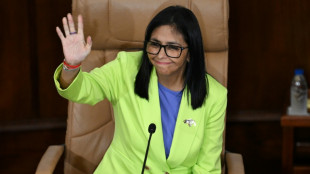 Interim Venezuela leader to visit US
Interim Venezuela leader to visit US
-
Australia holds day of mourning for Bondi Beach shooting victims

-
 Liverpool cruise as Bayern reach Champions League last 16
Liverpool cruise as Bayern reach Champions League last 16
-
Fermin Lopez brace leads Barca to win at Slavia Prague

-
 Newcastle pounce on PSV errors to boost Champions League last-16 bid
Newcastle pounce on PSV errors to boost Champions League last-16 bid
-
Fermin Lopez brace hands Barca win at Slavia Prague

-
 Kane double fires Bayern into Champions League last 16
Kane double fires Bayern into Champions League last 16
-
Newcastle pounce on PSV errors to close in on Champions League last 16

-
 In Davos speech, Trump repeatedly refers to Greenland as 'Iceland'
In Davos speech, Trump repeatedly refers to Greenland as 'Iceland'
-
Liverpool see off Marseille to close on Champions League last 16

-
 Caicedo strikes late as Chelsea end Pafos resistance
Caicedo strikes late as Chelsea end Pafos resistance
-
US Republicans begin push to hold Clintons in contempt over Epstein
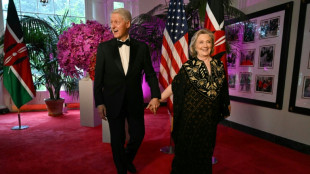
-
 Trump says agreed 'framework' for US deal over Greenland
Trump says agreed 'framework' for US deal over Greenland
-
Algeria's Zidane and Belghali banned over Nigeria AFCON scuffle

-
 Iran says 3,117 killed during protests, activists fear 'far higher' toll
Iran says 3,117 killed during protests, activists fear 'far higher' toll
-
Atletico frustrated in Champions League draw at Galatasaray

-
 Israel says struck Syria-Lebanon border crossings used by Hezbollah
Israel says struck Syria-Lebanon border crossings used by Hezbollah
-
Snapchat settles to avoid social media addiction trial
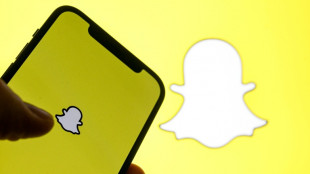
-
 'Extreme cold': Winter storm forecast to slam huge expanse of US
'Extreme cold': Winter storm forecast to slam huge expanse of US
-
Jonathan Anderson reimagines aristocrats in second Dior Homme collection
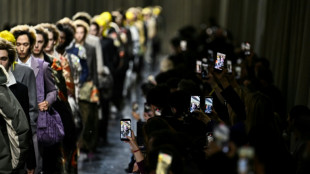
-
 Former England rugby captain George to retire in 2027
Former England rugby captain George to retire in 2027
-
Israel launches wave of fresh strikes on Lebanon

-
 Ubisoft unveils details of big restructuring bet
Ubisoft unveils details of big restructuring bet
-
Abhishek fireworks help India beat New Zealand in T20 opener

-
 Huge lines, laughs and gasps as Trump lectures Davos elite
Huge lines, laughs and gasps as Trump lectures Davos elite
-
Trump rules out 'force' against Greenland but demands talks

-
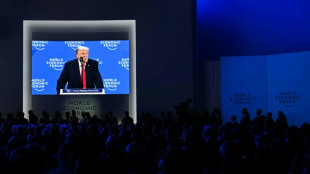 Stocks steadier as Trump rules out force to take Greenland
Stocks steadier as Trump rules out force to take Greenland
-
World's oldest cave art discovered in Indonesia

-
 US hip-hop label Def Jam launches China division in Chengdu
US hip-hop label Def Jam launches China division in Chengdu
-
Dispersed Winter Olympics sites 'have added complexity': Coventry

-
 Man City players to refund fans after Bodo/Glimt debacle
Man City players to refund fans after Bodo/Glimt debacle
-
France's Lactalis recalls baby formula over toxin
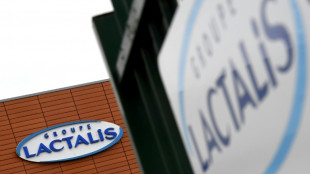
-
 Pakistan rescuers scour blaze site for dozens missing
Pakistan rescuers scour blaze site for dozens missing
-
Keenan return to Irish squad boosts Farrell ahead of 6 Nations

-
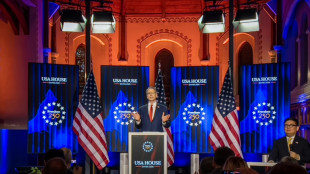 US Treasury chief accuses Fed chair of 'politicising' central bank
US Treasury chief accuses Fed chair of 'politicising' central bank
-
Trump rules out force against Greenland but demands 'immediate' talks


Google launches ChatGPT rival Bard in EU, Brazil
Google launched its AI chatbot Bard in the European Union, Brazil and a dozen other countries on Thursday and unveiled new features as it expands access to its answer to Microsoft-backed ChatGPT.
The US tech giant unveiled Bard in February but delayed its release in the European Union as the bloc plans to regulate artificial intelligence amid concerns about risks associated with the rapidly growing technology.
Google has raced to catch up with rival Microsoft, which has rushed to integrate ChatGPT-like powers in a wide array of its products, including the Bing search engine.
Bard is "now available in most of the world, and in the most widely spoken languages," Bard's product lead Jack Krawczyk and vice president Amarnag Subramanya wrote in a blog.
"As part of our bold and responsible approach to AI, we've proactively engaged with experts, policymakers and privacy regulators on this expansion," they said.
The company said it would incorporate user feedback and take steps to protect people's privacy and data as it broadens access to Bard.
The AI tool can now be used in over 40 languages including Arabic, Chinese, German, Hindi and Spanish. It was previously available in three languages -- English, Japanese and Korean.
Google also announced new features, including receiving audio responses from Bard or answers in five different styles: simple, long, short, professional or casual.
Another new feature allows users to upload photos that Bard can analyse for information.
The rise of AI has raised both excitement and concerns about its potential to improve or replace tasks done by humans.
AI tools have shown in recent months the ability to generate essays, create realistic images, mimic voices of famous singers and even pass medical exams, among a slew of uses.
Common worries include the possibility that chatbots could flood the web with disinformation, that biased algorithms will churn out racist material, or that AI-powered automation could lay waste to entire industries.
- 'Extinction' fears -
Experts -- even the founder of ChatGPT-maker OpenAI, Sam Altman -- have warned about the potential existential risks that the technology poses to humanity.
Altman and dozens of other specialists signed a statement in May urging global leaders to reduce "the risk of extinction" from AI.
But the warnings have not stopped the rapid development of AI.
Tesla and Twitter owner Elon Musk, who has issued his own warnings about the risks, launched an AI company named xAI on Wednesday.
The xAI website said Musk would run the company separately from his other companies but that the technology developed would benefit those businesses, including Twitter.
Last month, the European Parliament backed a draft law that will be the basis for the world's first comprehensive rules for AI.
It includes specific provisions for generative AI systems, such as ChatGPT and Dall-E, capable of producing text, images and other media.
The parliament and the EU's member states will negotiate on the regulation before it is approved and the bloc wants to strike a deal by the end of the year.
The rules stipulate that AI-generated content must be declared as such and bans some AI including real-time facial recognition systems.
C.Meier--BTB




